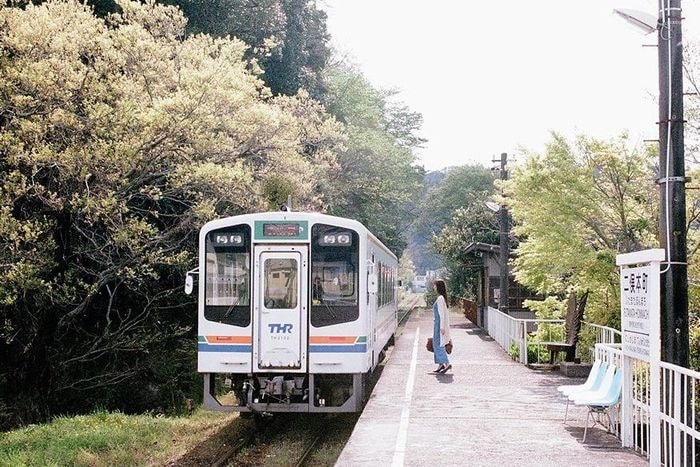
In a quiet rural area of Shizuoka Prefecture, central Japan, a part of the defunct and unstaffed Futamata-Hommachi Station has been transformed into a one-room hotel called "Inn My Life".
The facility was opened by Akihito Nakatani, 34, in May 2019 with the hope of attracting tourists to Tenryu – a place once famous for its forestry industry but now in decline.
"To turn a place into a tourist destination, first of all, there needs to be accommodation and attractive experiences. If I succeed, local people will be inspired to do the same and gradually turn the whole area into an ideal destination," he said.
Before leaving the city to return to the countryside, Nakatani ran a real estate business specializing in renovating old houses in Tokyo.
When he learned that the Tenryu Hamanako Railway Company was about to vacate part of its station, he quickly seized the opportunity to create a unique accommodation model.
"Until now, I have never seen a place in Japan that allows tourists to sleep at an empty station. It is this unique factor that makes me believe it will appeal to urban people who want to experience the countryside atmosphere," Nakatani said.
This accommodation has only 1 room, can accommodate up to 2 adults and 2 children, fully equipped with modern hotel facilities but without service staff.
Breakfast here is made with local ingredients, including cold cuts and bacon.
Nakatani also works closely with local businesses, such as Happy & Slappy, a bicycle shop that rents bicycles for guests. This way, Inn My Life is not only a place to stay, but also contributes to the surrounding economic activity.
In the mountains of Okutama, west of Tokyo, a large-scale project is turning an entire railway line into a uniquely designed hotel.
The project, called "Marugoto Hotel," converts abandoned houses into guest rooms and utilizes empty train stations as reception desks for each hotel "floor."
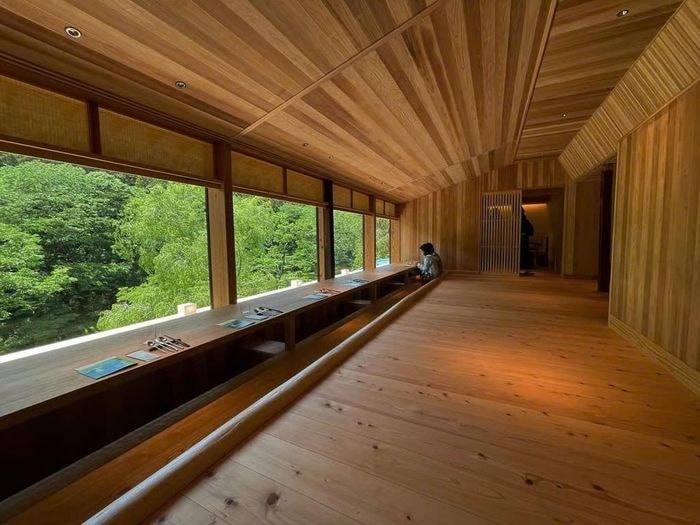
Marugoto Hotel is located at 13 stations on the JR Ome Line, 11 of which are unstaffed. Local residents welcome and guide guests, turning the stay into a community exploration experience.
Project coordinator Mai Watanabe said the idea came from the fact that events held around the station are usually one-off events. "Marugoto Hotel" wanted to create a product that could keep visitors longer and make them come back.
The first project, Satologue – a restaurant and sauna – opened in May 2024, located between Hatonosu and Kori stations.
This 130-year-old structure, once used for fish farming, has been restored with ancient architecture and a space close to nature. From May 25, an adjacent structure will begin welcoming overnight guests, allowing visitors to explore the local culture and landscape more deeply.
"The special thing about the project is that local people participate in welcoming guests. This not only helps guests connect more deeply with the community but also creates jobs for the locals," said Watanabe.
According to Watanabe, the project will expand the accommodation facilities between unmanned stations along the Ome Line, which is expected to expand to 30 other railway lines nationwide by 2040.
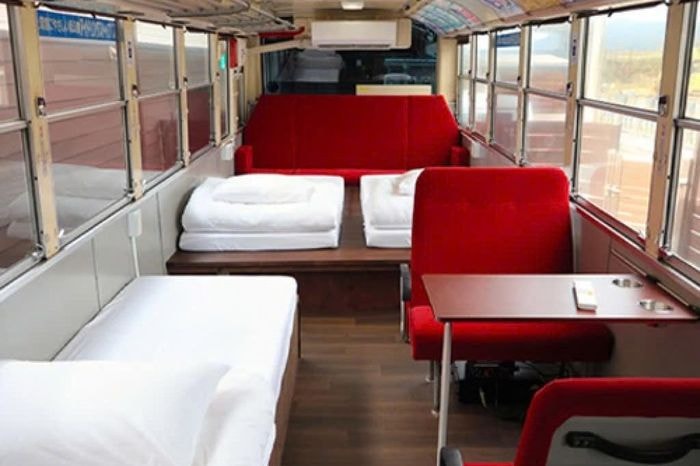
It's not just rail companies that are getting in on the trend, bus companies are also starting to creatively reuse their facilities.
In Shizuoka Prefecture, the Ugusu Information Center was once a bustling place for ticket sales and welcoming visitors. After closing in March 2022, instead of being demolished, it was renovated by Tokai Jidosha into an accommodation model called "Bustay".
Here, guests can stay overnight on a decommissioned bus. The vehicle is equipped with 3 beds, a table and working controls, providing an interesting experience for bus lovers.
The adjacent Ugusu Information Center building has also been converted into a guesthouse, complete with a kitchen, bathroom, and two extra beds. Guests can cook for themselves or order seafood and grilled dishes from nearby ryokan Makiba.
Even though it only serves one group of guests per night, Bustay still helps attract guests to explore the surrounding area, thereby promoting business and supporting the community.
"The more people stay, the more opportunities there are to meet and greet each other every morning. Small interactions like these make us believe that the decision to revive this place was the right one," said Hiroto Iyama, manager of ryokan Makiba.
TB (synthesis)Source: https://baohaiduong.vn/nha-ga-xe-bust-bo-hoang-o-nhat-ban-thanh-diem-du-lich-hap-dan-411733.html
























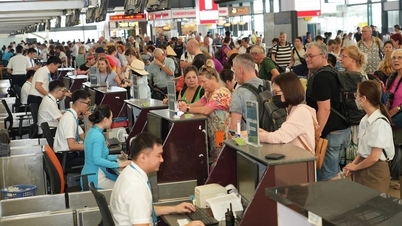




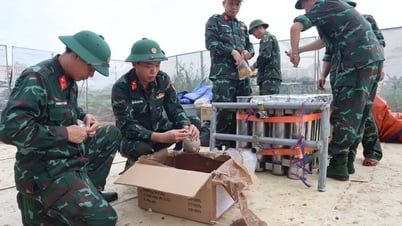






















































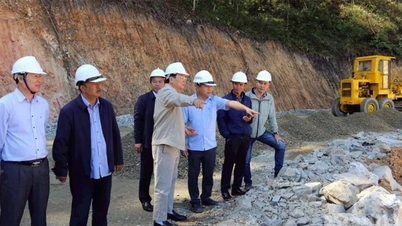
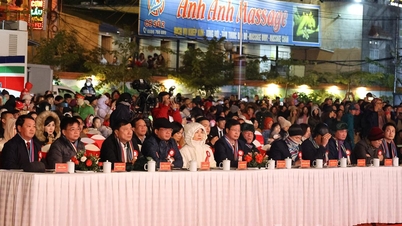
















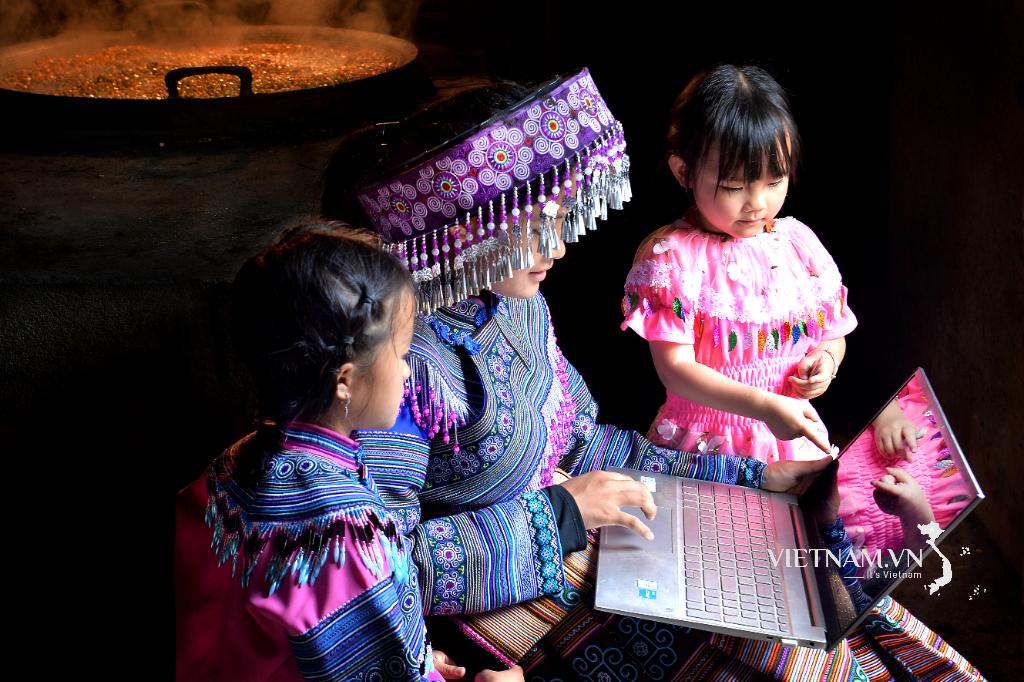


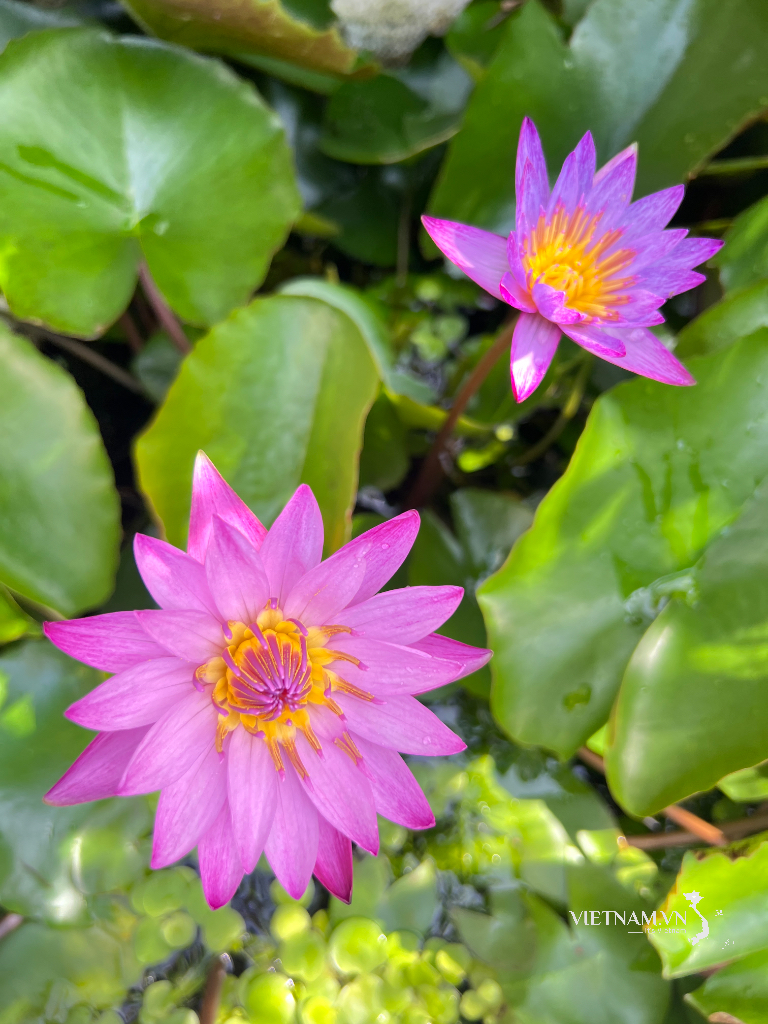
Comment (0)